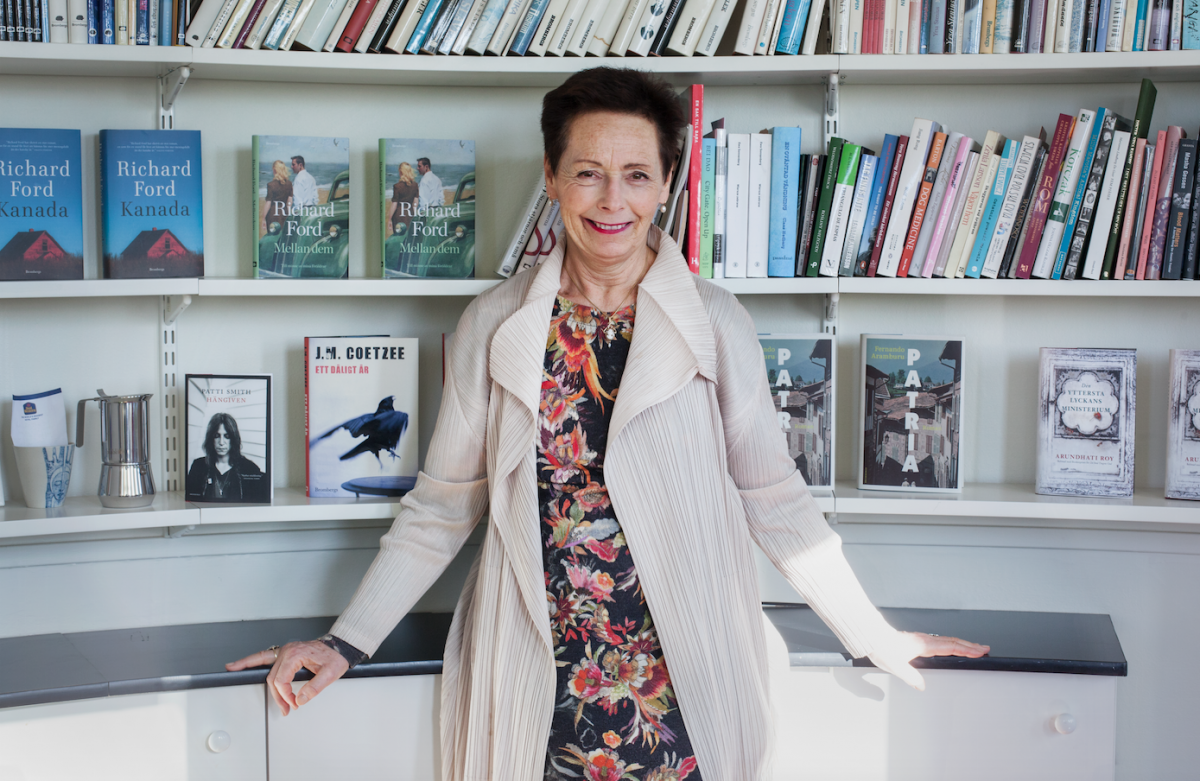You are viewing your 1 free article this month. Login to read more articles.
Building bridges
One could read Dorotea Bromberg being named recipient of this year’s London Book Fair Lifetime Achievement Award as the publishing industry giving an emphatic two fingers to the rising nationalist sentiment in Europe, for there is probably no better case study of emigrants enriching a new country.
Bromberg and her father Adam came to Sweden as refugees, fleeing the anti-Semitic persecutions which erupted in their native Poland during the 1968 political crisis and arriving with, she says, "not a word of Swedish between us". Yet, the two soon established Brombergs, a house which would become Sweden’s pre-eminent literary publisher. Bromberg says: "The award means so much, not just for me personally but for what my father achieved [he died in 1993]. I think it recognises what we have been doing, that we have been privileged to publish literary authors without going too commercial. But I’m mostly thinking about the future, not the past. What publishing
is really about is making contacts and there are a lot of people I still haven’t met. I hope this award will open some more doors for us."
Nobel house
If there is a shorthand for Brombergs’ place in its home market for British readers, it is the Faber of Sweden: a venerable house which stands toe-to-toe with (and often surpasses) the big boys in book awards. It has about a 60/40 ratio of translated titles to home-grown authors, with its foreign writers including Ian McEwan, Arundhati Roy, Nicole Krauss and Jonathan Franzen. Its top Swedish star is probably the journalist and novelist Majgull Axelsson. Yet, Bromberg cautions, the literary sector is still a struggle, "even if you have been going for over 40 years". She explains: "I think it’s like in the UK and other markets: what is selling is crime, self-help and ‘feel-good’ titles. We’ve done OK in the past few years, but not great."
Interestingly, the roaring Swedish audiobook market is not helping as "it is probably even more commercial [than physical book sales]". But Brombergs has reacted to the changing landscape, launching a successful children’s list and embarking on a ramped-up programme of live events. Bromberg says: "I love doing events, and we’ve done a lot over the years, but not in a systematic way. So we are putting a lot of planning into roadshows, working with [local authorities], figuring out how we can cheaply and efficiently bring our authors to the public."

Lack of speaking Swedish aside, Adam Bromberg was not unskilled for publishing—he had been a translator and academic publisher in Poland, so it was not a completely random decision to go into the trade. He also had "undaunted optimism", launching the company with a fresh-out-of-university Dorotea after convincing a "very inexperienced bank manager" to give them a loan.
Luck was on their side: the first book was a weighty non-fiction tome on China which "every house in Sweden turned down twice and even the agent tried to tell us not
to acquire". It became an unexpected hit. That freed some more cash from the inexperienced bank manager, which led to the acquisition of five titles from Isaac Bashevis Singer, who a year later won the Nobel Prize. Bromberg says: "The Nobel, of course, means a lot in Sweden, so the first Singer book, which we thought might sell 3,000 copies if we were lucky, sold 150,000. And the media went mad, trying to figure out who these immigrant Poles who opened a Swedish house were. It really put us on the map."
Brombergs then began publishing the Polish poet Czesław Miłosz, who was unknown in Sweden; two years later he, too, claimed the Nobel. Bromberg says: "It was at first a labour of love; my father thought it was criminal that he wasn’t published in Sweden. And we took on all his world rights which, to be honest, for most poets is a lot of administration for very little money. But, as you might imagine, rights sales took off after he won the prize."
Two Nobels in three years gave the firm a solid base from which it built. Now, a third generation of the family is in the business, with daughter Casia Bromberg the publisher and head of publicity and marketing. Dorotea Bromberg says: "I want the publishing house to be here long after I leave. Casia has grown up in the business and has interesting ideas about how to adapt to the market. This makes me believe that the business will stay strong.
"You know, when the award was announced, I got a lot of nice messages from people in publishing, which was wonderful. But it was also in the media in Sweden, and
I have had so many best wishes from readers. It doesn’t really matter if the public knows who I am, because it is the author who matters. But the fact that people took the time to tell me they care and understand the effort we put into the business means a lot."










